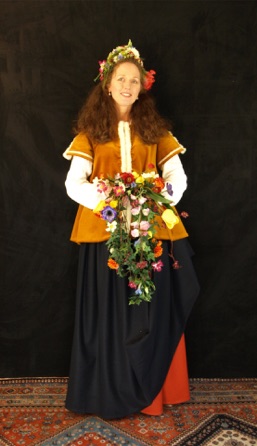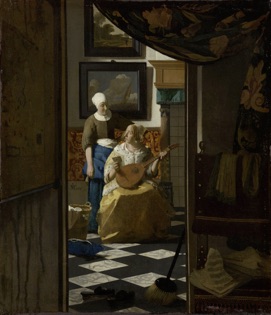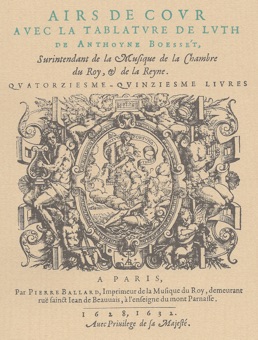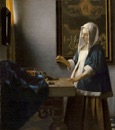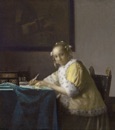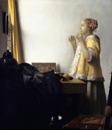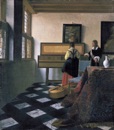Paula Bär-Giese aLs FLORA
The Stichting Musick’s Monument produces Historical Art Productions.
Pictures, music and text are integrated: You will hear music from the same period and the same area of origin as the visual materials; these are supplemented with explanatory text. From this combination evolves something like a Gesamtkunstwerk (a total work of art), a complete new way of digital art presentation .
INFO STICHTING MUSICK’S MONUMENT
The Love Letter, Johannes Vermeer, c. 1669 - c. 1670
COLLECTION RIJKS MUSEUM, THE NETHERLANDS

Woman with a lute - Johannes Vermeer
COLLECTION METROPOLITAN MUSEUM OF ART, NEW YORK
Ennemond Gaultier
Courante - L’Immortelle
The Concert , Johannes Vermeer, c. 1663
AMARILLI - GIULIO CACCINI 1550-1618 - JOHANNES VERMEER - THE GOLDEN AGE JACKET
PAULA BAR-GIESE - FLORA - SOPRANO & VIRGINAL
The Golden Age was a musical age. First and foremost, music meant singing, and from the highest to the lowest ranks on social scale, people sang. The more refined polyphonic singing was reserved for the aristocracy and the upper classes, who were admirers of the French airs de cour, songs with lute accompaniment. In the first half of the 17th century such music books were widespread, for instance the sixteen volumes of the Airs de different autheurs, mis en tabulature de luth (1608-1643).
In the Dutch Republic, songs were a genre that cut through all segments of musical life: amateur and professional singers used song to express themselves. The custom procedure was to write new words to excisting, generally familiar melodies, especially tunes of French, Italian or English origin.
In the Dutch Republic, music-making was mainly a social activity. When two or more people were together in an informal setting, they would start making music, as we can see in the many Dutch pictures of the period.



